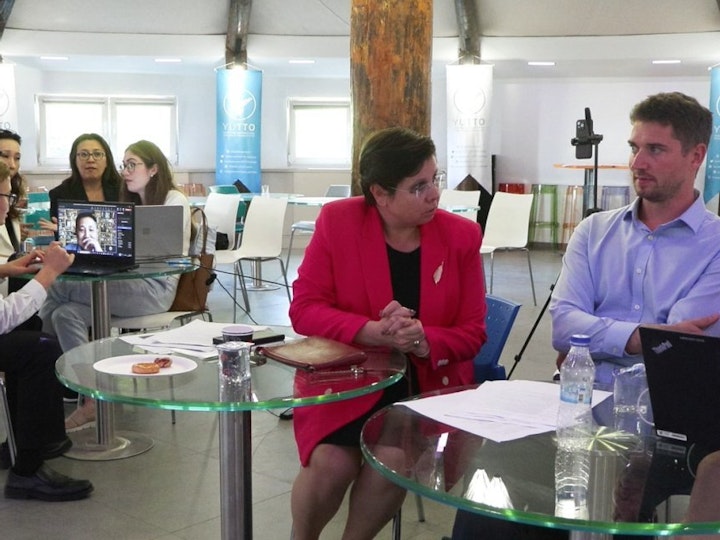Inspiring Turkish research on the impact of COVID-19 on creative industries
Professor Yelena Kalyuzhnova, Director of the Centre for Euro-Asian Studies (CEAS), was a key speaker at a United Nations Economic Commission for Europe (UNECE) international policy forum on 23 October 2023, where she presented her research on the impact of COVID-19 on creative industries with a view to exploring the resilience of creative industries in Turkey.

The forum, titled 'The Impact of the COVID-19 Pandemic on the Creative Industries: Toward Sustainable Recovery and Inclusive Growth', was held as part of the Arts and Humanities Research Council research project ‘Impact Acceleration Fund’. It was hosted by the Management Applications and Research Centre (YUVAM) at Yeditepe Üniversitesi in Istanbul, Turkey, with the CEAS and the Kazakh-British Technical University (KBTU) Kurmangazy Conservatory in Kazakhstan as key collaborators.
Professor Kalyuzhnova was accompanied by Dr Olena Khlystova and Dr Aaron Ahali from Henley Business School to share her research findings. Her research explored how to level up the organisational resilience of the music industry in Special Programme for the Economies of Central Asia countries, revealing how important the digital skills of creative companies and their ability to adapt to the pandemic were by surveying 10,000 music industry representatives in theatre, opera, ballet and more.
Professor Natalya Ketenci, Director of YUVAM and Professor of Economics at Yeditepe Üniversitesi, noted that her institute was collaborating with Henley Business School on a similar project to study how Turkey's creative industries cope with major periods of disruption. As well as COVID-19, she highlighted that the problems caused in the creative sector by the energy crisis and the February 2023 earthquake in Turkey were also key areas of study.
The forum's attendees were a mix of music industry representatives, researchers in the field of creative industries, international organisations and policymakers spanning the UK, Kazakhstan, Kyrgyzstan, Georgia and Turkey. The discussions focused on the long-term impact on employment and income within the creative industries when undergoing a period of turmoil, with notable examples being the increase in working from home or remotely and the need of some creative industry workers to sell their equipment to continue their daily lives during times of financial hardship.
Summarising the research and its long-term impact, Professor Kalyuzhnova said: "Due to the pandemic, we observed that small businesses in the music industry had to develop creative solutions to offer their services while observing social distancing. More than a third of music industry employees in the UK lost their jobs in 2020. In Kazakhstan, this rate is 15%. Analysis of the process is of great importance because it can help develop more measures to adapt to possible future crises."


